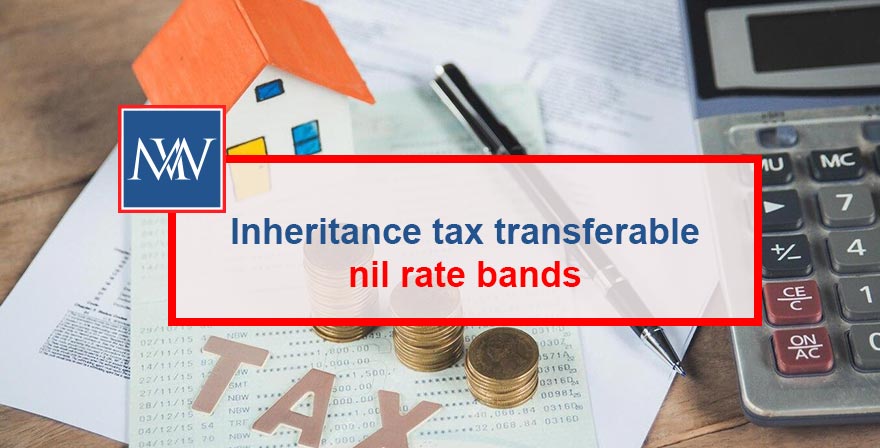
Inheritance tax transferable nil rate bands
The nil rate band is the amount that a person may leave free of inheritance tax. Each person has their own nil rate band, which for 2024/25 is set at £325,000. A person’s estate may also benefit from a further nil rate band—the residence nil rate band (RNRB)—where they leave a residence to a direct descendant or descendants.
The nil rate band is available regardless of the amount of a person’s estate. However, the RNRB is reduced where the value of the estate exceeds £2 million, being abated by £1 for every £2 by which the value of the estate exceeds £2 million. This means that the RNRB is not available for estates valued at more than £2.35 million, while a reduced RNRB is available for estates valued at between £2 million and £2.35 million.
Spouses and civil partners
The inter-spouse exemption means that there is no inheritance tax to pay on anything that a person leaves to their spouse or civil partner. This means that if a person leaves their entire estate to their spouse or civil partner, they will not use their own nil rate band, or RNRB. However, this is not a problem as the bands are transferable, allowing the surviving spouse or civil partner’s estate to benefit from their spouse or civil partner’s unused nil rate bands on their death. Consequently, it is not necessary to leave bequests to the value of an individual’s nil rate bands to someone other than their spouse to prevent their own nil rate bands from being wasted.
Claiming the transferable nil rate band
On the death of the surviving spouse or civil partner, their estate can claim the unused portion of their spouse or civil partner’s nil rate band, which can be set against the value of the surviving spouse/civil partner’s estate.
It is the unused percentage that is claimed, rather than the absolute amount. This provides an automatic adjustment for changes in the nil rate band so that the amount that is available for transfer is at current rather than historical amounts. If the first spouse or civil partner to die left everything to their spouse/civil partner, the surviving partner’s estate will benefit from 100% of the nil rate band at the value at the time of the surviving partner’s death.
It should be noted that the transferable nil rate band can only be claimed, usually by the surviving partner’s personal representative, on or after their death. The claim must be made within two years from the end of the month in which the surviving partner dies (or, if later, within three months from the date on which the personal representatives first act). The surviving partner is not able to claim the transferable nil rate band during their lifetime, and as such, it is not available to shelter chargeable lifetime transfers. If the surviving partner remarries or enters a new civil partnership and is again widowed, their estate can only benefit from one transferable nil rate band.
Transferable RNRB
As with the nil rate band, the unused portion of a person’s RNRB can be transferred to the estate of their surviving spouse or civil partner. The RNRB is only available where a residence is left to a direct descendant.
As noted above, the RNRB is subject to a taper, and, when planning ahead, consideration should be given to the likely value of the estate on each spouse/civil partner’s death. For example, if a person has an estate of £1.5 million, which includes their share in a residence, and they leave it to their spouse, there will be no tax to pay, and the taper will not apply. However, on the death of the surviving spouse/civil partner, having inherited everything on their partner’s death, their estate may exceed £2 million, such that the RNRB may be fully or partially lost. If this is likely, it may be better for each spouse to leave their share of a residence to a direct descendant rather than to each other to preserve the availability of the RNRB.
As long as the value of neither estate exceeds £2 million, a married couple or civil partners can leave £1 million free of inheritance tax as long as they leave a residence worth (or funds from a former residence having downsized of) at least £350,000 to one or more direct descendants.
Need Accountancy Support?
For information on bespoke training, or if you have any other questions for Makesworth Accountant, please fill in your details below
















 151
151